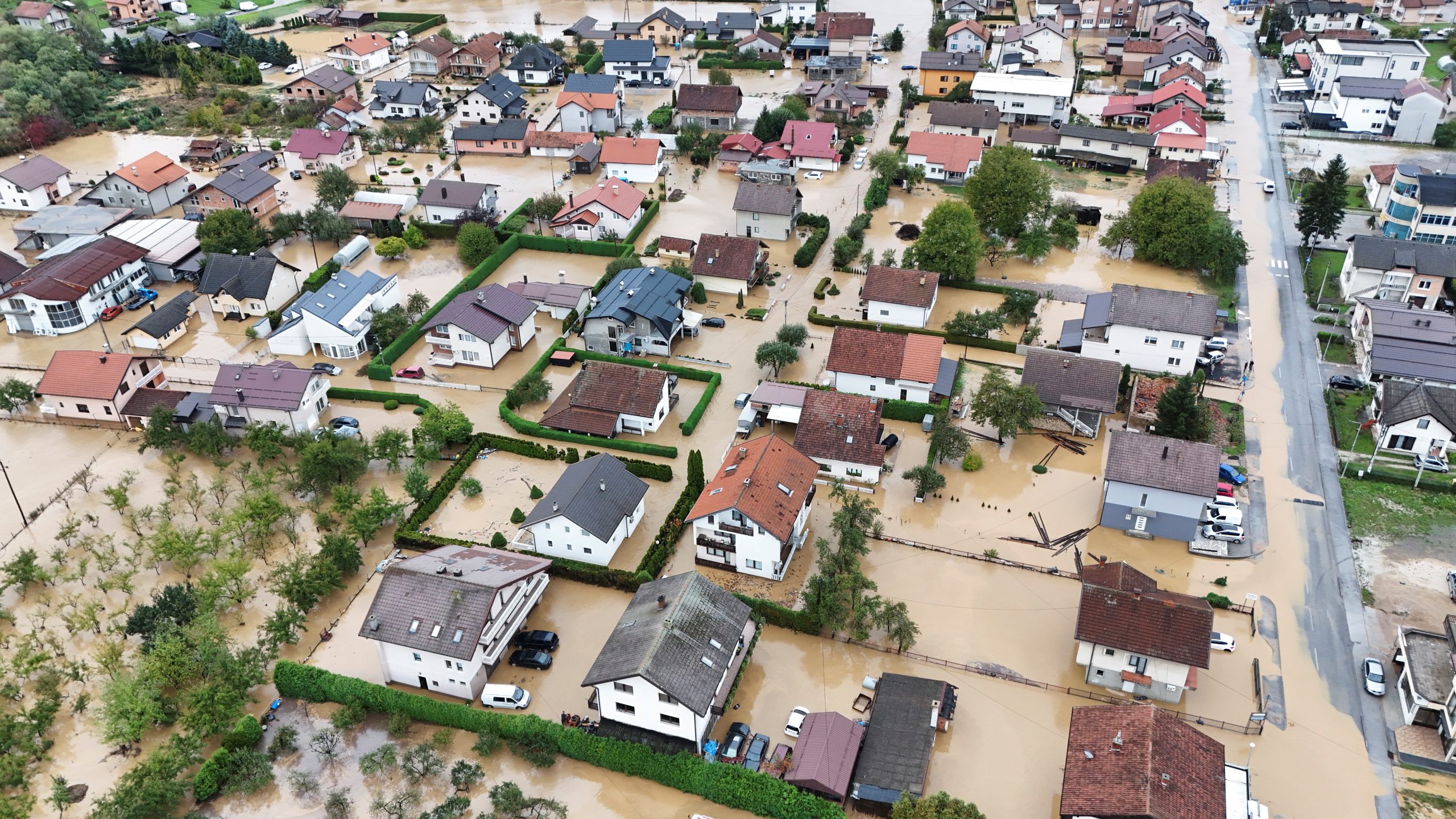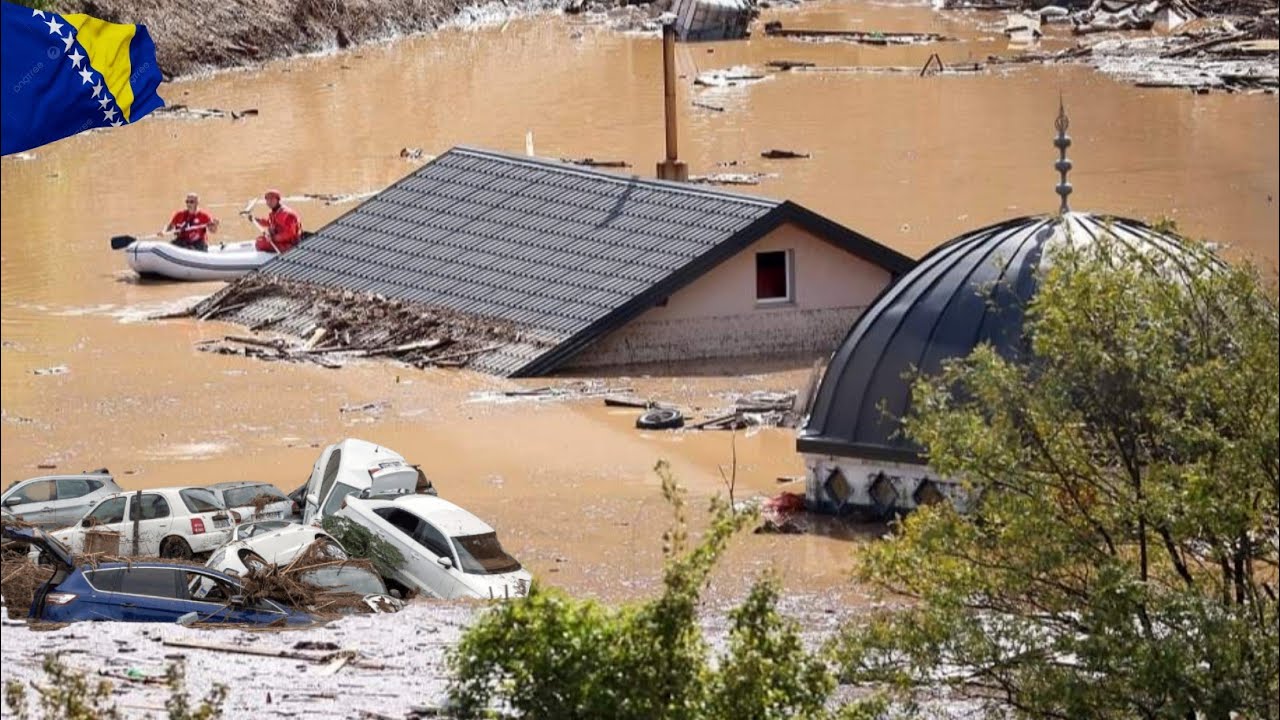Central Bosnia-Herzegovina has been severely impacted by flash floods and landslides, leading to the tragic deaths of at least 16 individuals. The flooding has left many towns and villages isolated, with reports indicating that some homes are nearly submerged. The situation has prompted a state of emergency as officials assess the scale of the disaster and work to respond to the urgent needs of affected communities.
The town of Jablanica, situated along the crucial route connecting the cities of Mostar and Sarajevo, has experienced some of the most devastating impacts.
As rescue operations unfold, local officials have confirmed that at least 13 deaths occurred in the area, while three additional fatalities were reported in the town of Fojnica. As many as ten people remain unaccounted for in the Herzegovina-Neretva Canton, highlighting the ongoing search and rescue efforts.

Central Bosnia-Herzegovina Faces Devastating Floods and Landslides, Claiming 16 Lives Amid Climate Crisis
Intense rainfall from overnight storms caused rivers to overflow, inundating various regions. Aerial images depict the extensive flooding in towns and villages, with roads, bridges, and railway tracks severely damaged or rendered impassable due to debris.
In particular, the main M-17 highway, which runs alongside the River Neretva, was heavily obstructed near Jablanica, and significant damage occurred to a 17-kilometer stretch of railway between Ostrozac and Grabovica.
Residents in the affected areas have shared harrowing accounts of their experiences during the flooding. One homeowner described how their house was inundated at 3:30 AM, and they barely escaped with their son before witnessing their home collapse.
The flooding is not limited to Bosnia; neighboring Montenegro has also faced severe impacts, with roads washed away and the village of Komarnica isolated. In Croatia, rising water levels in rivers have raised concerns about flooding in regions such as Karlovac.
The recent flooding events are part of a broader trend, with much of Central Europe experiencing severe floods in the previous month, particularly in Poland, the Czech Republic, and Romania. Experts from the World Weather Attribution group have stated that this extreme weather was exacerbated by climate change.
Europe noted as the fastest-warming continent, has seen average temperatures rise by approximately 2.3°C over the past five years compared to the late 19th century, underscoring the urgent need for addressing climate-related challenges.











































